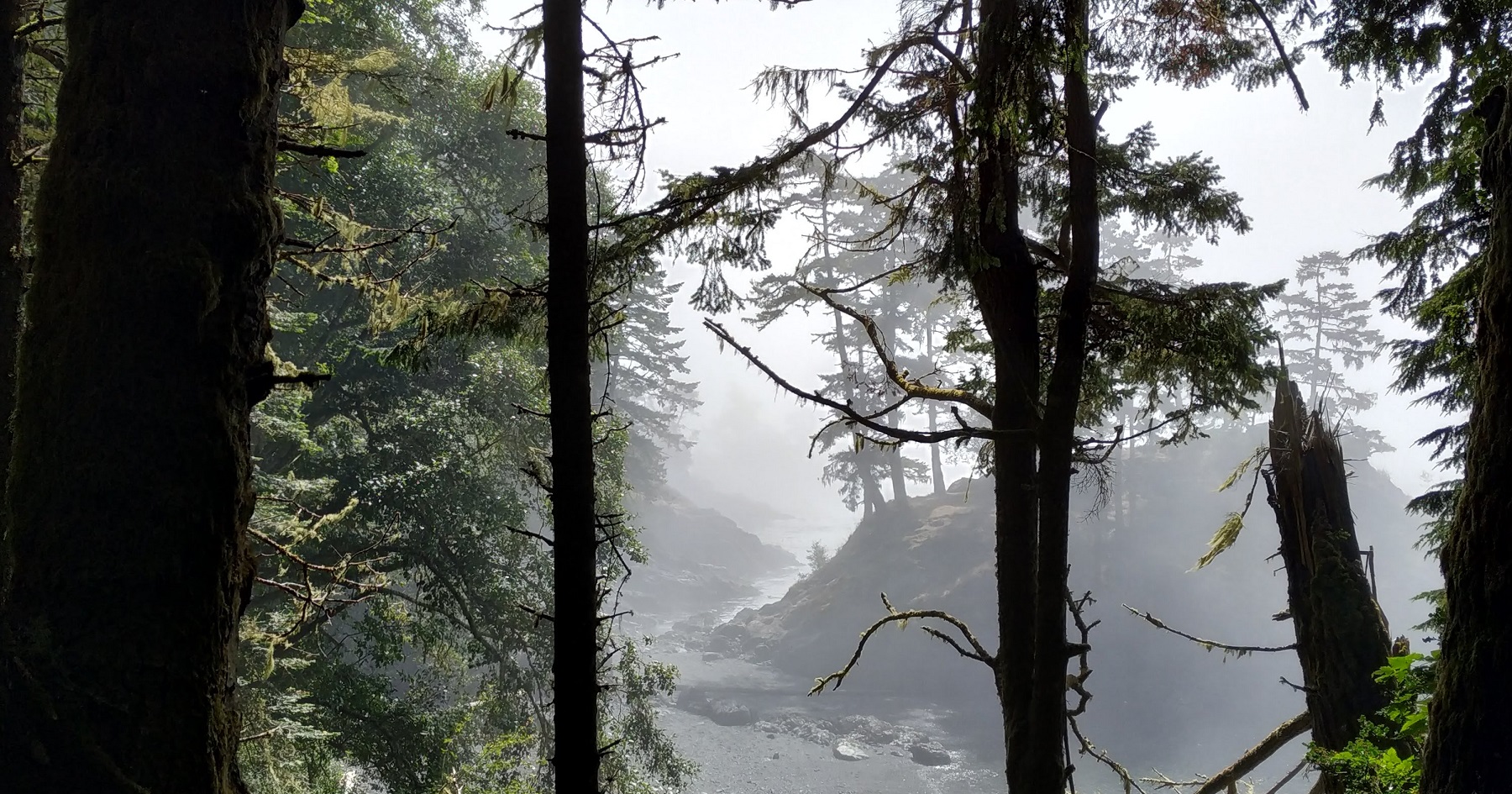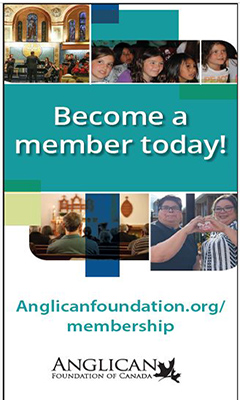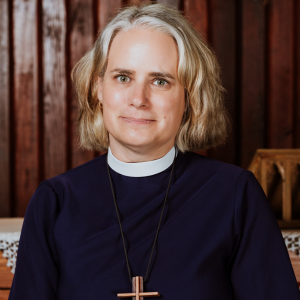Below is a selection of photos and an excerpt from the transcript of Bishop Anna’s closing sermon at the May 2024 We Together diocesan conference. You can also watch the morning and afternoon sessions on the diocesan website.
As we bring this time together to a close, I would like to leave you with an image from the late and great Teilhard de Chardin (1881-1955). Teilhard was a fascinating Jesuit priest and theologian with a fascinating story. Look him up when you get a chance.
Some 70 years ago Teilhard observed that Christianity is like a tree that has been planted in too small a pot. He said that Christianity must be replanted, either in a bigger pot or, he suggested, better yet, in the earth itself.
This is a rich and helpful metaphor, especially in this part of the world, where we are blessed to live alongside some very, very big trees. Trees that are hundreds of feet tall and hundreds of years old. Trees for which the idea of a pot is laughable. No pot could every contain the trees of our rainforests, our Douglas firs, pines and hemlocks.
James and I have recently welcomed a third teenager, apart from our own two. We’ve welcomed the child of a friend, a 16 year old from Tokyo who was in need of a change. She’s been with us a couple months and if you ask her what she thinks of living in Victoria, the first thing she says is that she loves the trees. How big they are, how many of them there are.
For you can’t live in this part of the world and not be awestruck by the majesty of Creation.
As Brendon mentioned last night, and as John mentioned this morning, a 2022 publication edited by our friend at the University of Victoria, Paul Bramadat, Religion at the Edge: Nature, Spirituality and Secularity in the Pacific Northwest identifies that this part of the world is characterized by what he terms reverential naturalism. For me, reverential naturalism boils down to the fact that everyone who lives in this part of the world cannot but be enchanted by the trees, the coastlines, the waves and the wind, the ferns, the oaks, the whales, herons, kingfishers and sea lions. The canticle we started our day with — “Glorify the Lord, O mountains and hills… O springs of water, seas, and streams, O whales and all that move in the waters.” — makes sense to us, resonates with us.
The beauty and majesty of this part of Gods’ creation is so great, the revelation that is creation is so wonderfully accessible to us here, that it’s no wonder some people are so enthralled with the first book of revelation, with creation itself.
So, to go back to Teilhard de Chardin’s metaphor of the church being like a tree that has grown too big for its pot and that needs to be replanted. My closing question for us is: what would happen if we here in this Diocese of Islands and Inlets lived as if God has already made that happen? As if God has already gone on ahead of us — as he, the risen Christ, does at Easter — and planted the tree that is the church in the earth itself?
What if we were honest about the fact that the church as institution is not a great gardener. We are putting a lot of effort into keeping the church in the pot. We lament that we don’t have any young people in the pot anymore, that the pot is cracked and needs a new roof and heat pump, that the cracks are showing.
Meanwhile, meanwhile, maybe God has already transplanted the tree, not into a bigger pot, but into the earth itself.
John has reminded us of how we have become misenchanted with capitalism and consumerism. Our misenchantments have caused us to turn inward. But God, God I am quite sure needs us to turn outward.
For the first and great commandment is that we must turn outward, to love of God and love of neighbour. It’s not, thank God, all about us, our own comfort and desires, but about a world in which all people, all of creation thrives. And that world is possible, but it requires each of us to discipline ourselves, to seek the good of others before our own good, to be enchanted with the whole of creation and to let go of being so obsessed with consumerism and self-satisfaction.
I don’t need to tell you that the world is facing some pretty huge problems and it is going to take all of us, working together, to tackle them. We are not doing enough for the children in Gaza, Ukraine, South Sudan. We are not doing enough for the young people, especially the Indigenous young people, in our own country. There are more Indigenous children in “care” today than at the height of residential schools.
I think that what God is telling us, as the Diocese of Islands and Inlets, the most secular diocese in North America, is that we don’t need to worry about the pot. We need to grow where we are planted and I think we are, like it or not, being transplanted. We are being taken out of our comfortable little pot, our comfortable pew, and planted in the earth itself.
Not everything about the secular society is good but not everything about it is bad. I think the good news in this part of the world is that the so-called secular society around us is enchanted with the earth itself. And this, this gives us an opportunity for dialogue, service and faithfulness. The Diocese of Islands and Inlets has roots in so many places across this beautiful diocese of towering forests and mist-laden coastlines.
But we need to get out of our pot, out of our bounded identities, our comfortable and familiar ways and dare to be planted, dare to be planted in earth itself. Our God-infused island home.











